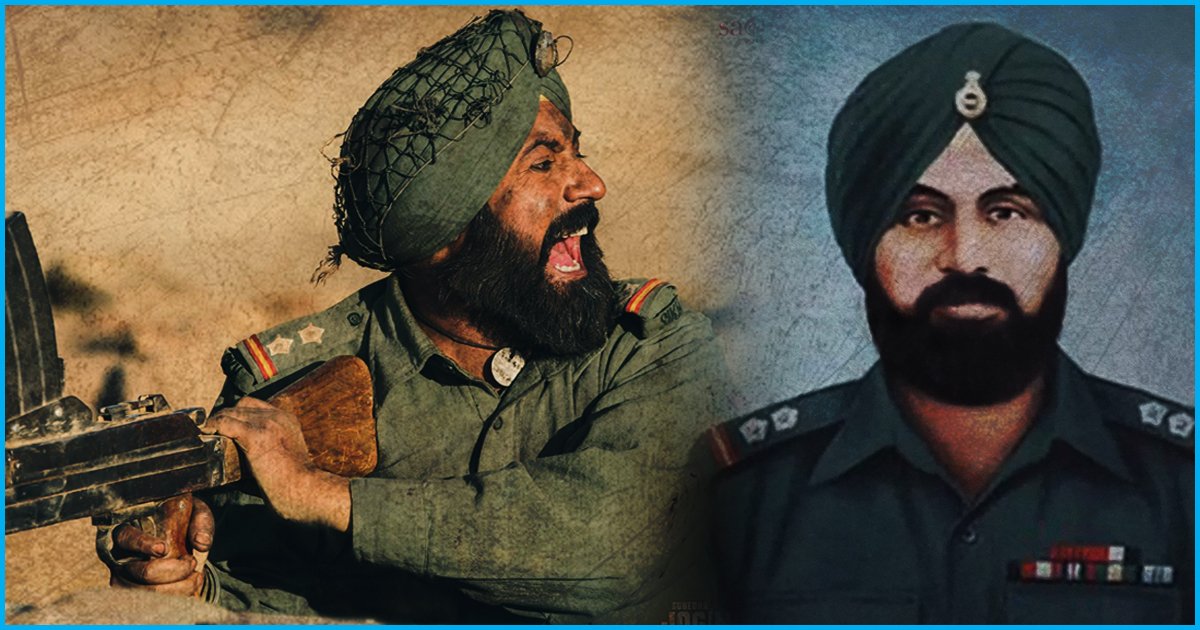
Remembering Param Vir Subedar Joginder Singh Who Laid His Life Fighting Chinese Until His Ammunition Ran Out
15 Dec 2017 11:17 AM GMT
23 October 1962, in the Battle of IB ridge, a leader fought to Martyrdom with his men against heavy odds. Despite knowing certain defeat to come, Subedar Joginder Singh refused to fall back as he weighed his life against keeping the Chinese at bay until ammunition ran out. We look back to this exceptional man’s life, which sadly has been forgotten by most.
The Beginning
Born on September 28, 1921, in a poor family living near Moga, Punjab, Joginder Singh was unable to complete his formal education due to his financial background. His parents Sher Singh Sahnan and Krishan Kaur run the family by farming their own land. He considered that being a soldier would do justice to his skills and joined the army to find his purpose. In 1936, on his 15th birthday, he enrolled in the 1st Batallion of the Sikh regiment under the then British government. After joining Army, he passed the Army Education Examination and he was good enough to be appointed as the Unit Education Instructor. Before 12 years passed, he had already fought in two wars; the Second World War in Burma front, and the war against Pakistani militia in time of independence in Srinagar, Kashmir. He was raised to a Subedar designation.
Veteran by experience in a very young age, Joginder Singh fought his last battle in Sino Indian war on 1962.
Arms and the Man: Final Act
China’s intrusion over Tibet faced continuous protests from India, yet they continued with gathering forces and undaunted invasion strategy. Their troops occupied Indian territory, and Prime Minister Jawaharlal Nehru asked for plans to tackle it. The plan proposed by Indian army was refuted and the PM opted for a “forward policy”. The Chinese did not pay heed to any diplomatic caution and went ahead to suddenly attack the Namka Chu post, through which the army barely sustained after heavy casualties. Very soon after the attack, the Chinese army proceeded to Tawang, through the Bum-la axis. The Tawang post was strategically very important to the north-east frontier. To defend it, Subedar Singh had to proceed with an inadequate and small platoon of 20 men under him in Sikh Regiment. They studied the terrain, building bunkers and trenches in a combined strategic network, braving the physically-numbing cold without any special resource or winter gear.
The Chinese attacked in three waves on the 23rd October, hoping to blast through the handful or soldiers that were posted. But they did not imagine what kind of fight those few warriors could put up.
Singh did not order fire until the opponents came on clear range; he risked the distance to save the little ammunition they had as opposed to the high quality of weaponry and destructive mortars. He successfully managed to destroy the first wave attack, although half his people were already dead for the purpose, and he himself got shot in the thigh. Dangerously outnumbered and outresourced, Singh chose sure death defending the IB ridge, unwilling to give Tawang’s access to the Chinese, over the evacuation prospect. His gallant choice instilled spark in the few remaining soldiers who shrieked terror to the attackers “Jo Bole So Nihal, Sat sri akal!”
After four hours of refusing to submit and single-handedly killing 50 opponent soldiers, Joginder Singh was captured and taken as a prisoner of war. All of his fellow fighters were dead by then, except three people who fell back under the Subedar’s orders to bring more ammunition.
Subedar Joginder Singh succumbed to the injuries under Chinese imprisonment.
The Epilogue
Indian army citation reads
“When the situation became untenable Subedar Joginder Singh and the few men that were left in the position fixed bayonets and charged the advancing Chinese, bayoneting a number of them before he and his comrades were overpowered. Throughout this action, Subedar Joginder Singh displayed devotion to duty, inspiring leadership and bravery of the highest order.”
After he was awarded the Param Veer Chakra, the gallantry award for the highest order in India, the Chinese returned his ashes with full military honours to the battalion on 17 May 1963, which were later passed to his wife in Meerut.
A monument in his honour near the IB ridge speaks about his “unflinching devotion to duty and conspicuous act of Bravery.”
A film named “Subedar Joginder Singh” starring Gippy Grewal is currently being produced. The film is set to release on coming 6th April.
 All section
All section













